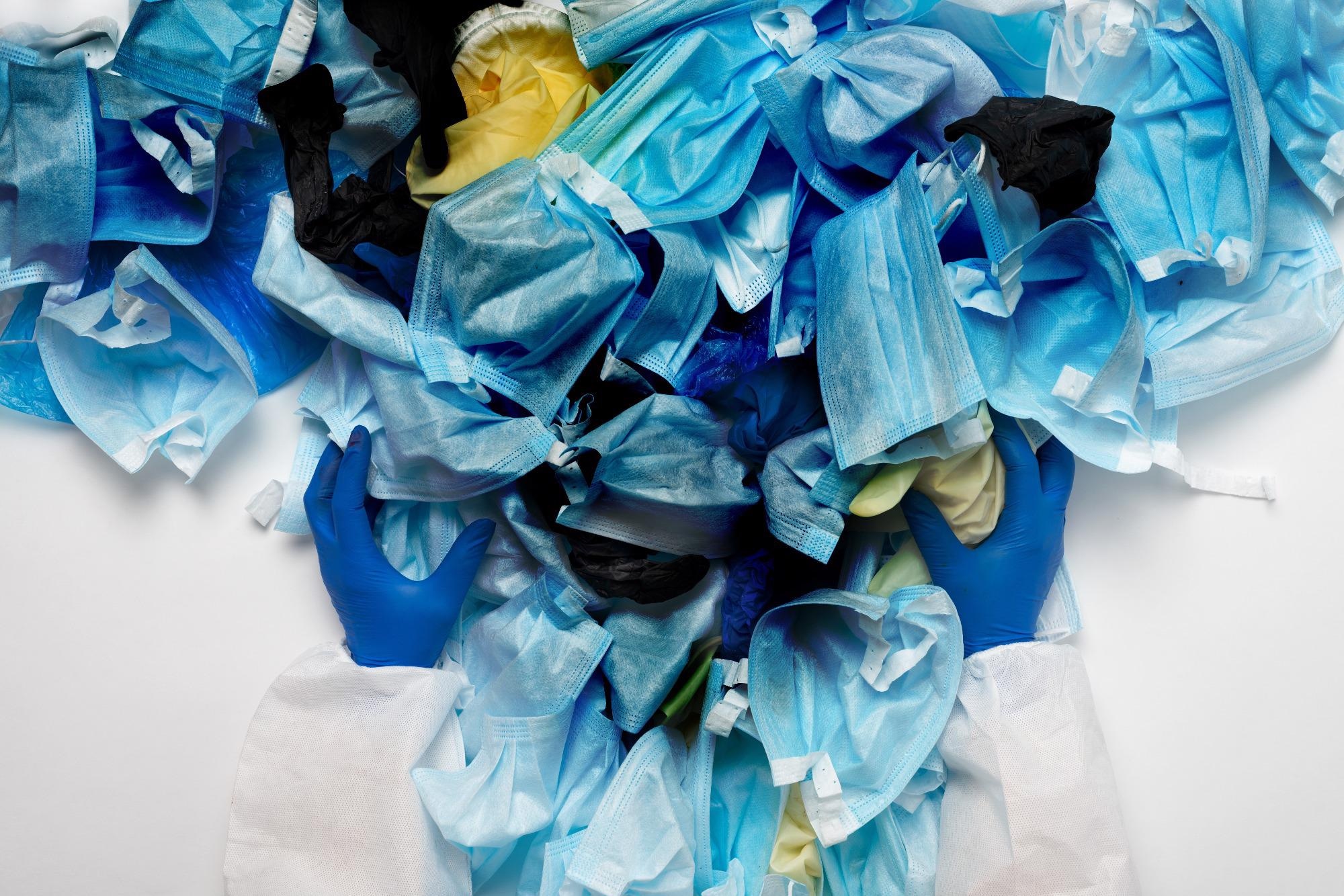Single-use personal protective equipment PPE (from masks to gloves etc.) are difficult to recycle in conventional recycling systems as they cost more for local recyclers to collect and process than the eventual materials are worth. Resultingly, vast amounts of personal protective equipment (PPE) are dumped into landfill sites every single day.

Image Credit: Shutterstock.com/Natallia Boroda
Now, a group of researchers at the University of Auckland’s Faculty of Engineering have developed a novel method for turning PPE into harmless byproducts which would prevent tons of PPE from ending up in landfills, or worse, in the oceans.
The process, which turns PPE into water and vinegar, sounds like an inconceivable phenomenon, but it could be a revolutionary way to combat the COVID-19 health care waste problem.
In a recent report, the WHO recently announced that the pandemic has generated tens of thousands of tons of extra waste, and urgent waste management systems are required to mitigate this issue.
Turing PPE into Water
In order to turn the PPE into useful byproducts, the researchers developed a process – in collaboration whereby shredded PPE materials from gloves, masks, gowns and safety glasses are fed into a machine that applies pressurized hot water and compressed air.
This is a clean, chemical-free solution which will be a game changer internationally.
Dr. Saied Baroutian, Associate Professor, Department of Chemical and Materials Engineering, University of Auckland
The resulting end products generated by the PPE recycling process are water and acetic acid (a main component of vinegar). Conducted at temperatures of 300 oC, the method takes around 60 minutes to complete using a small machine prototype developed by the University of Auckland’s Faculty of Engineering team.
Other byproducts that are generated during the process include oxygen and reduced concentrations of CO2, which can be easily and safely extracted throughout. Furthermore, the waste is completely destroyed during the hydrothermal deconstruction/valorization process.
The liquid produced in the process is safe, inert and can be reused – the vinegar or acetic acid can be used for disinfecting and the water can be reused for the processing cycle therefore minimising water consumption and helping with sustainability.
Dr. Saied Baroutian, Associate Professor, Department of Chemical and Materials Engineering, University of Auckland
Environmental Impact: Clean and Green
The WHO has called for drastic changes to be made in how health care waste streams are managed as a fundamental requirement of climate-smart health care systems.
Many countries have already committed to this initiative at the recent UN Climate Change Conference while ensuring a healthy transition and recovery into a post-COVID-19 future while remaining prepared for other potential health crises to come.
The University of Auckland researchers have also developed another strategy to reuse PPE waste, led by Dr. Yvonne Anderson, senior lecturer at the Department of Pediatrics, which applies advanced technology to disinfect PPE so it can be safely reused or recycled.
By developing two technologies – one for reusable waste and the other for waste that cannot be reused or recycled – we are closing the loop on this ever-growing serious waste issue and providing a circular solution that truly is clean and green.
Dr. Saied Baroutian, Associate Professor, Department of Chemical and Materials Engineering, University of Auckland
Baroutian and his team will now develop the prototype to produce a larger-scale pilot feasibility study to take one step closer towards producing a fully scalable proof-of-concept.
The long-term goal is to produce a strategy that both answers the WHO’s call to ensure safe and rational use of PPE while partnering with the relevant organizations to take this innovative technology out of the lab and into practice on a global scale.
The team has also demonstrated that a widespread hydrothermal deconstruction system could have economic advantages as their evaluations assess that the method could process PPE waste streams at comparable costs to current autoclaving and waste disposal landfill methods.
And in terms of the environment, the savings on offer are huge.
Dr. Saied Baroutian, Associate Professor, Department of Chemical and Materials Engineering, University of Auckland
References and Further Reading
Auckland.ac.nz. (2022) Turning PPE into water: sounds like a miracle? - The University of Auckland. [online] Available at: https://www.auckland.ac.nz/en/news/2022/02/16/turning-ppe-into-water-miracle.html
Who.int. (2022) Tonnes of COVID-19 health care waste expose urgent need to improve waste management systems. [online] Available at: https://www.who.int/news/item/01-02-2022-tonnes-of-covid-19-health-care-waste-expose-urgent-need-to-improve-waste-management-systems#
Disclaimer: The views expressed here are those of the author expressed in their private capacity and do not necessarily represent the views of AZoM.com Limited T/A AZoNetwork the owner and operator of this website. This disclaimer forms part of the Terms and conditions of use of this website.